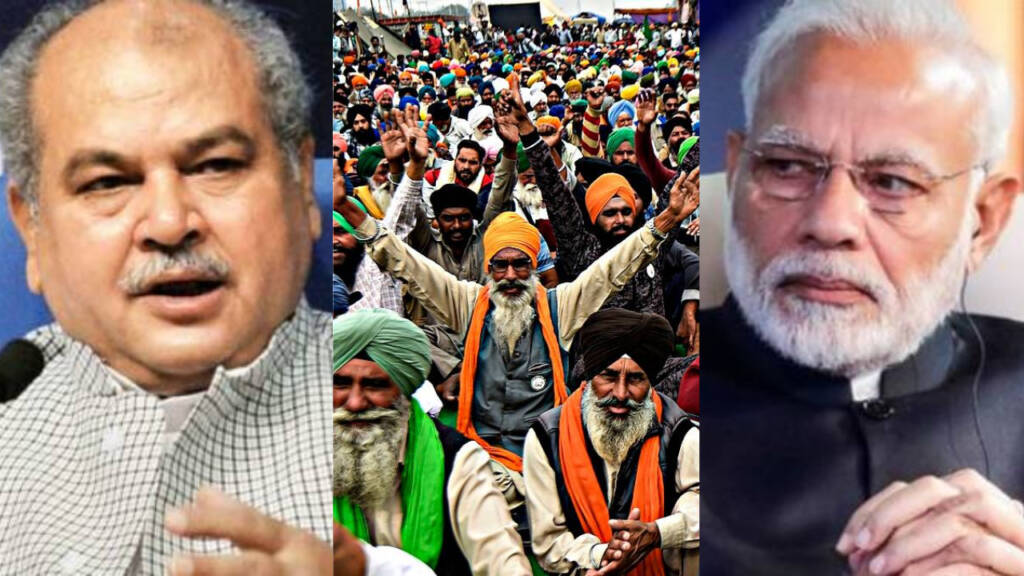In a step that would have far-reaching consequences, the Modi government has offered the agitating farmers to keep the farm laws on hold for 18 months. Union Agriculture Minister Narendra Singh Tomar, who has been leading the government delegation at the talks, said, “As you are aware, the Supreme Court has stayed the agriculture reform laws for a short duration. Their implementation will not happen for some time. In the past and even today, we told them that more time is needed to consider the laws in detail, discuss various aspects related to the agitation. And the required time may be six months, one year or one-and-half years.”
The Union Agriculture Minister Tomar said that the government expects to reach a solution with the farmers on January 22. The farm laws were much-needed to turn the whole country into a single market for the farmers, but the union government’s decision to put the laws on hold due to agitation of a handful of farmers from one state will bring down the morale of the entire farming community, which, overall, was set to benefit from these laws.
The Modi government brought-in the three farm laws in June and entrepreneurial activity in the agricultural sector increased exponentially in the last six months, with the highest number of agricultural firms registered in the ongoing fiscal year. In states like Karnataka, the companies have already started offering farmers more than the MSP for their produce. Although the suspension of the farm laws will not impact the farmers in the states like Karnataka, Uttar Pradesh, and Madhya Pradesh, which have already implemented their own version of farm laws and brought the mandi taxes to minimal, it will definitely impact the farmers in states like Himachal Pradesh, Jammu & Kashmir, Haryana, and Punjab where the small farmers are forced to go by the diktat of the traders or middlemen.
In the states like Punjab, the traders make lakhs of rupees just by facilitating the trade between the farmers and the Food Corporation of India. Even the Punjab government makes thousands of crores of rupees every year with the imposition of 6-8 per cent mandi tax on procurement. So, with the old system the state government, big farmers and traders are on the gaining side while the Union government and small farmers are on the losing side.
Moreover, the farmers from the states like UP, Bihar, Maharashtra, West Bengal, and Odisha, which are large producers of paddy and wheat, but the FCI does not procure from their mandis, are also on the losing side. The Union government spends around 2 lakh crore rupees every year on the procurement of grains for the public distribution system, more than 80 per cent of which, is procured from Punjab and Haryana and the money goes to direct to landlords instead of the farmers.
On the other hand, the poorer states like Bihar, Madhya Pradesh and Odisha, which produce better quality paddy, are ignored by the FCI. The farmers in the states like Maharashtra, Himachal Pradesh, and Uttarakhand were so happy with the farm laws that they organised road rallies, celebrating them. But with the suspension of the farm laws, the farmers from these states and those from Maharashtra will probably start a counter-protest.
Shetkari Sangthan, a farmer union established by one of the foremost experts of agricultural economics, Sharad Joshi, with its primary base in Maharashtra, organised many rallies in support of the farm laws. These organisations might also start a protest against the suspension of the farm laws because the Maharashtra government is yet to pass any law which frees the farmers from the clutches of the mandi system.
Moreover, apart from being an example of bad economics, the suspension of farm laws will give ideas to protestors of other causes as well. We might soon see a protest in Kashmir for the resurrection of Article 370, a protest in West Bengal against CAA or for amendment in CAA to include Muslims from Bangladesh and so on.
